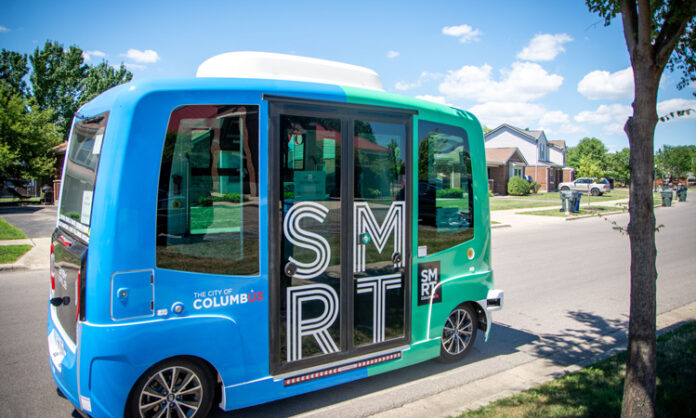Smart Mobility Hubs, Connected Vehicles, and the re-commissioned Linden LEAP seek to improve mobility, road safety, and community food support. The projects are funded by the $40 million grant awarded to Columbus, the winner of the 2016 Smart City Challenge, by the U.S. Department of Transportation (USDOT).
“These mobility pilots in Linden will bring food to neighbours in need, connect residents to reliable and affordable mobility options, and help vehicles travel through the neighbourhood more safely. I invite Linden to try the services we’ve designed for and with you, and to share your experiences, so that these technologies can help neighbourhoods like yours throughout our community and the country” said Mayor Ginther.
Smart Mobility Hubs have been created to aggregate multi-modal first mile/last mile solutions at accessible locations throughout the community to make travelling easier and more affordable. Mobility options at each Hub are unique to that location and include different combinations of CoGo conventional and e-bikes, scooter parking and charging docks, EV charging, ride-hail pick/up drop off points, and dockless scooter, bike, and car share parking.
To assist with the critical distribution of food, the Linden LEAP, an all-electric self-driving shuttle, is being recommissioned to transport pre-packaged food boxes from St. Stephen’s Food and Nutrition Center to the Rosewind Community Center. A trained operator will be on board, but no riders will be permitted due to coronavirus social distancing requirements.
“We have seen an unprecedented need for food during the current pandemic. About 20 per cent of those in need do not have transportation to our centre and the nearest bus stop is half or three quarters of a mile away,” said Marilyn Mehaffie, CEO of St. Stephen’s Community House. “The Linden LEAP will help bridge the transportation gap, providing food at Rosewind.”
Pilots will run through March 2021, with reporting provided to the USDOT and published via the Smart Columbus website in May 2021.
Analysis
I thought this article was interesting because it addresses the ways Columbus leaders are addressing the city’s mobility problems near, but not in, the project’s target neighborhood of Upper Arlington. The two pilot projects that are most notable to me are the SmartMobility Hubs, which help solve the issues of mobility in the first mile/last mile stages of a journey, as well as the Linden LEAP, a self-driving shuttle (which happened to be used to transport food for those in need during the pandemic). I think it will be interesting to note the ways in which these pilot projects are impactful in the specific neighborhoods in which they were deployed. There will likely be things that the pilot projects addressed well as well as things the projects missed, which will help guide my own mobility-based project. It is obviously also important to note the context in which these pilot projects were tested (in Linden, a lower income neighborhood, as well as in the midst of a pandemic), whereas my project will take place in the wealthier neighborhood of Upper Arlington at a time in which vaccinations are more widely available.




